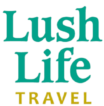Canada’s PCR test policy at border “actively being looked at,” says Dr. Tam
11-05-2021 10:28 am Pax Global Media

Pax Global Media
Canada’s pre-arrival PCR testing policy is “actively being looked at,” Chief Public Health Officer Dr. Theresa Tam is saying, according to a report in the Canadian Press.
Canada first introduced a COVID-19 test requirement for air travellers at the height of the pandemic in January. The government then extended the rule to land travellers the following month.
The rule requires all travellers entering Canada to show proof of a negative COVID-19 molecular test taken within 72 hours of their departing flight or arrival at the land border.
The travel industry has been ramping up its efforts in protesting this requirement, which advocates say is a major barrier to restarting the sector.
Last month, the Association of Canadian Travel Agencies (ACTA), travel advisor Lorraine Simpson, and the Canadian Snowbird Association, in association with Canadian Travel and Tourism Roundtable, held a press conference, calling on the federal government to remove unnecessary barriers and expenses related to travel – pre-arrival PCR testing in particular.
Ever-changing rules at the border combined with COVID-19 testing requirements are causing “uncertainty and confusion” in the marketplace, said Wendy Paradis, president of ACTA, noting that a PCR test can cost upwards of $200 per person.
READ MORE: CBSA reminds travellers of the rules ahead of U.S.’s Nov. 8 reopening
That adds up in travel costs, especially for families travelling with children.
At a second press conference held this week, the Roundtable, again, called on the feds to remove its pre-arrival PCR test policy as it disproportionately impacts average Canadian families.
“The PCR test is a major barrier for middle-class families hoping to travel across the border,” said Sheila Gallant-Halloran, owner of Lush Life Travel, on Thursday (Nov. 4). “The result is that families simply aren’t travelling. The cost and inconvenience is too high, and until the federal government takes action to reduce the obstacles to travel, small Canadian tourism businesses like mine will not be able to recover fully.“
David Schwartz, a father of two who lives in Ottawa, ON, said travel is just not possible for his family right now.
He said his family hoped to be with his in-laws in Texas to celebrate their 50th wedding anniversary this winter, but molecular tests for all of them would add $800 to $1,000 to the cost of the trip.
Paradis says ACTA and the Roundtable’s “ask” of the federal government is to make decisions around travel restrictions and burdensome barriers “based on science and data.”
She referenced the Government of Canada’s COVID-19 Testing and Screening Expert Advisory Panel, a science-based report, released last May, that states that pre-arrival testing is not necessary for fully vaccinated travellers.
“We ask them to go back to their own expert panel of doctors and scientists and follow their advice,” Paradis said last month.
On Friday, Canadian Border Services Agency (CBSA) reminded Canadians of its testing requirements for vaccinated travellers entering Canada in advance of the border with the United States reopening on Monday (Nov. 8).
At midnight, non-essential traffic will resume moving in both directions at the Canada-U.S. land border for the first time since March 2020.
Don’t miss a single travel story: subscribe to PAX today! Click here to follow PAX on Facebook.
